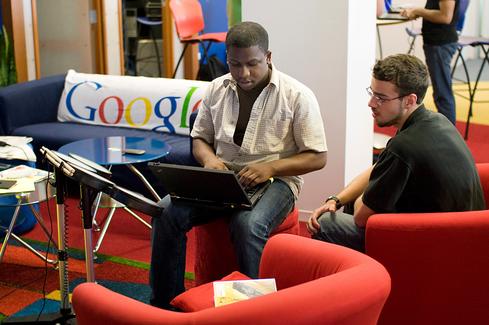With a workforce that is 70% male and more than 60% white, Google has detailed its plan to increase diversity. The search giant is one of several Silicon Valley giants looking for a more representative employee pool.


10 Trailblazing Companies For Women In IT
10 Trailblazing Companies For Women In IT (Click image for larger view and slideshow.)
Google, one of the world's biggest technology companies, issued a promise to do more to improve the diversity of its employees, releasing holistic plan based on a four-point strategy.
The specific objectives of Google's plan center on: hiring diverse employees, fostering a fair and inclusive culture, expanding the pool of technologists, and reaching out to underrepresented communities, including women and minorities, through the Accelerate with Google Academy.
Google said it has doubled the number of schools where it sends recruiters, and expects that this year 20% of its new hiring will come from the campuses it's expanding to.
While it is one of the most high-profile of the Silicon Valley giants to take on diversity in the workforce, Google is not alone in this effort. Earlier this year, Intel announced a plan to put $300 million toward diversifying its offices, while creating more opportunities for women interested in STEM careers.
Even young and upcoming companies such as Twitter have felt the sting of hiring practices that skew toward white male engineers and developers.
In an effort to provide a more fair and inclusive culture, Google has introduced a hands-on workshop that provides practical tips for addressing bias when it arises. The search giant announced its plans in a May 5 blog post.
"In 2015, more than 500 Googlers will participate in Diversity Core, a formal program in which employees contribute -- as part of their job -- to the company’s diversity efforts," Nancy Lee, VP of people operations for Google, wrote on the company's blog. "We want to ensure that we have an environment where all Googlers can thrive."
Introducing computer science (CS) education access and demonstrating that jobs in programming and coding aren't just occupations for men are other main points in Google's strategy.
The strategy includes the company's CS First program, which is designed to help teachers, coaches, or other adult volunteers help teach kids the basics of coding.
Finally, the Accelerate with Google Academy, a 12-week program designed to help businesses start marketing online, has several partners that represent minority groups, such as the Greater New England Minority Supplier Development Council (GNEMSDC) and organizations elsewhere in the US.
The company's efforts have previously included partnering with Disney on animated kids shows to inspire girls to pursue careers in computer science, embedding engineers as professors at Historically Black Colleges and Universities like Howard University.
Google has also focused on building local initiatives to introduce coding to high school students from diverse communities.
[Read about how Google, Amazon, and Apple are the most desirable places to work.]
"With an organization of our size, meaningful change will take time. From one year to the next, bit by bit, our progress will inch forward," Lee concluded. "More importantly, our industry will become more inclusive, and the opportunities for currently underrepresented groups will grow. We'll share our updated diversity data for 2015 soon. We're gradually making progress across these four areas, and we're in it for the long term."
As of May 2014, when Google finally released statistics regarding employee diversity, it was revealed that the company's workforce is 70% male and 61% white.
"Put simply, Google is not where we want to be when it comes to diversity, and it’s hard to address these kinds of challenges if you're not prepared to discuss them openly, and with the facts," Laszlo Bock, senior vice president of people operations, wrote at the time.
"I think that expanding the general pool of technologists is really important, and it is great that Google has identified this as one of its goals," Shravan Goli, president of IT jobs portal Dice, told InformationWeek. "Specifically, I think it is important to talk with young people early about the opportunities there are in tech, whether that involves tech companies going to local middle schools and high schools, developing coding camps, et cetera. I also think it is extremely important to speak with young female students and show them the vast possibilities there are with a career in tech. Tech is still a fairly male-dominated industry, and encouraging young, smart females to get into tech would be incredibly valuable."
About the Author(s)
You May Also Like







